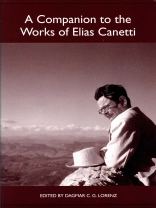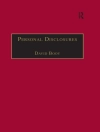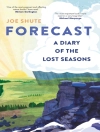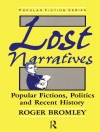New essays providing a comprehensive scholarly introduction to the great writer and thinker Canetti.
The Bulgarian-born scholar and author Elias Canetti was one of the most astute witnesses and analysts of the mass movements and wars of the first half of the 20th century. Born a Sephardic Jew and raised at first in the Bulgarianand Ladino languages, he chose to write in German. He was awarded the 1981 Nobel Prize in Literature for his oeuvre, which includes dramas, essays, diaries, aphorisms, the novel
Die Blendung (Auto-da-Fé) and the long interdisciplinary treatise
Masse und Macht (Crowds and Power). These works express Canetti’s thought-provoking ideas on culture and the human psyche with special focus on the phenomena of power, conflict, and survival. Canetti’smasterful prose, his linguistic innovations, his brilliant satires and conceits continue to fascinate scholars and general readers alike; his challenging, genre-bending writings merge theory and literature, essay and diary entry.This Companion volume contains original essays by renowned scholars from around the world who examine Canetti’s writing and thought in the context of pre- and post-fascist Europe, providing a comprehensive scholarly introduction.Contributors: William C. Donahue, Anne Fuchs, Hans Reiss, Julian Preece, Wolfgang Mieder, Sigurd P. Scheichel, Helga Kraft, Harriet Murphy, Irene S. Di Maio, Ritchie Robertson, Johannes G. Pankau, Dagmar C.G. Lorenz, Penka Angelova and Svoboda A. Dimitrova, Michael Mack.
Dagmar C. G. Lorenz is professor of Germanic Studies at the University of Illinois-Chicago.
Table des matières
Introduction – Dagmar C. G. Lorenz
Good-Bye to All That: Elias Canetti’s Obituaries – William Collins Donahue
‘The Deeper Nature of My German’: Mother Tongue, Subjectivity, and the Voice of the Other in Elias Canetti’s Autobiography – Anne Fuchs
Elias Canetti’s Attitude to Writers and Writings – Hans S. Reiss
Canetti and the Question of Genre – Julian Preece
‘The Faultiest Expressions Have the Greatest Attraction’: Elias Canetti’s Proverbial Aphorisms – Wolfgang Mieder
‘Canetti’s
Aufzeichnungen’ – Sigurd Paul Scheichl
Staging a Critique of Modernism: Elias Canetti’s Plays – Helga W. Kraft
‘Gute Reisende sind herzlos’: Canetti in Marrakesh – Harriet Murphy
Space in Elias Canetti’s Autobiographical Trilogy – Irene Stocksiecker Di Maio
Canetti and Nietzsche: An Introduction to
Masse und Macht – Ritchie Robertson
Images of Male and Female in Canetti’s Fictional, Autobiographical, and Theoretical Work – Johannes Pankau
Canetti’s Final Frontier: The Animal – Dagmar C. G. Lorenz
Canetti, Roustchouk, and Bulgaria: The Impact of Origin on Canetti’s Works – Penka Angelova and Svoboda Alexandra Dimitrova
Elias Canetti’s Response to the Shoah:
Masse und Macht – Michael Mack
A propos de l’auteur
WILLIAM COLLINS DONAHUE is Cavanaugh Professor of the Humanities at the University of Notre Dame.












